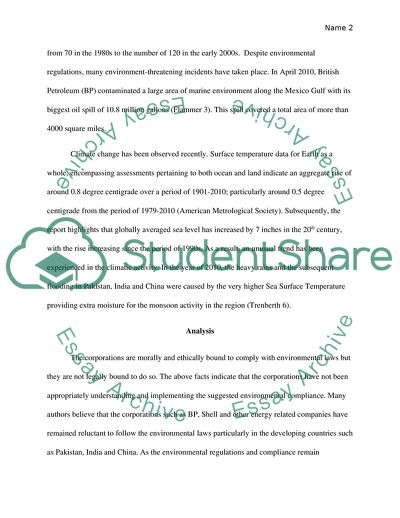The Voluntary Nature of the Environmental Compliance Research Paper. https://studentshare.org/environmental-studies/1783998-business-ethics
The Voluntary Nature of the Environmental Compliance Research Paper. https://studentshare.org/environmental-studies/1783998-business-ethics.


